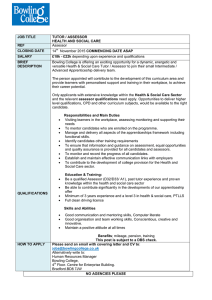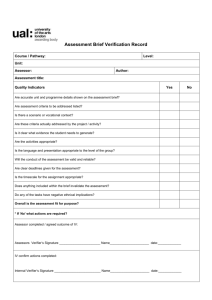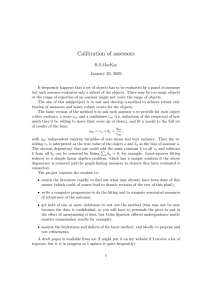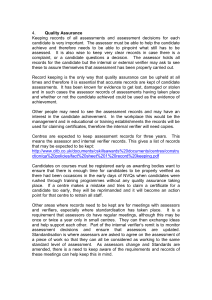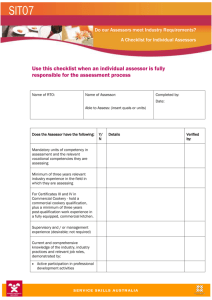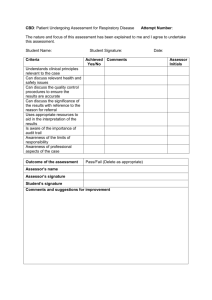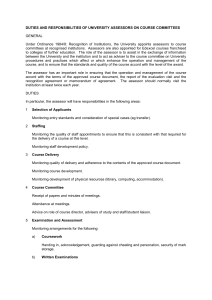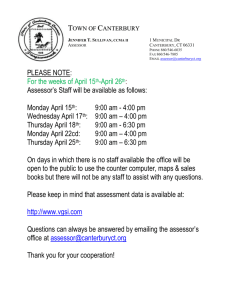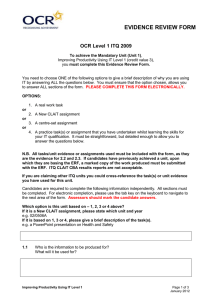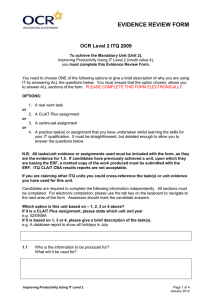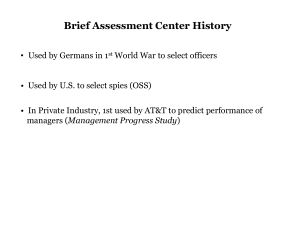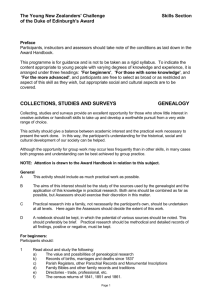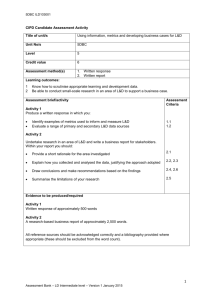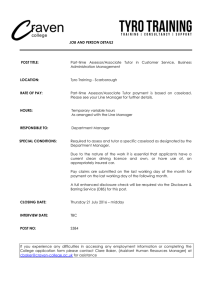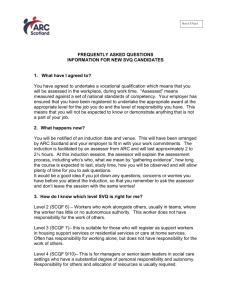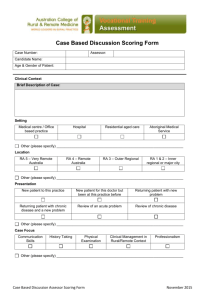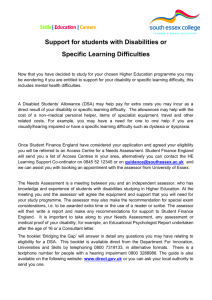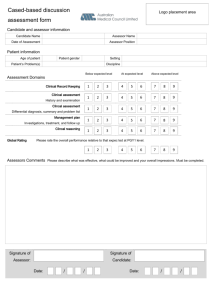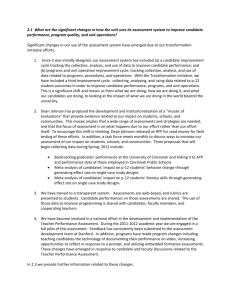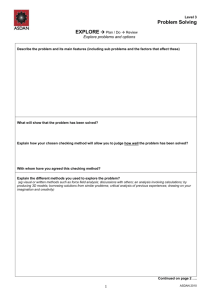Guidance for Direct Observations
advertisement
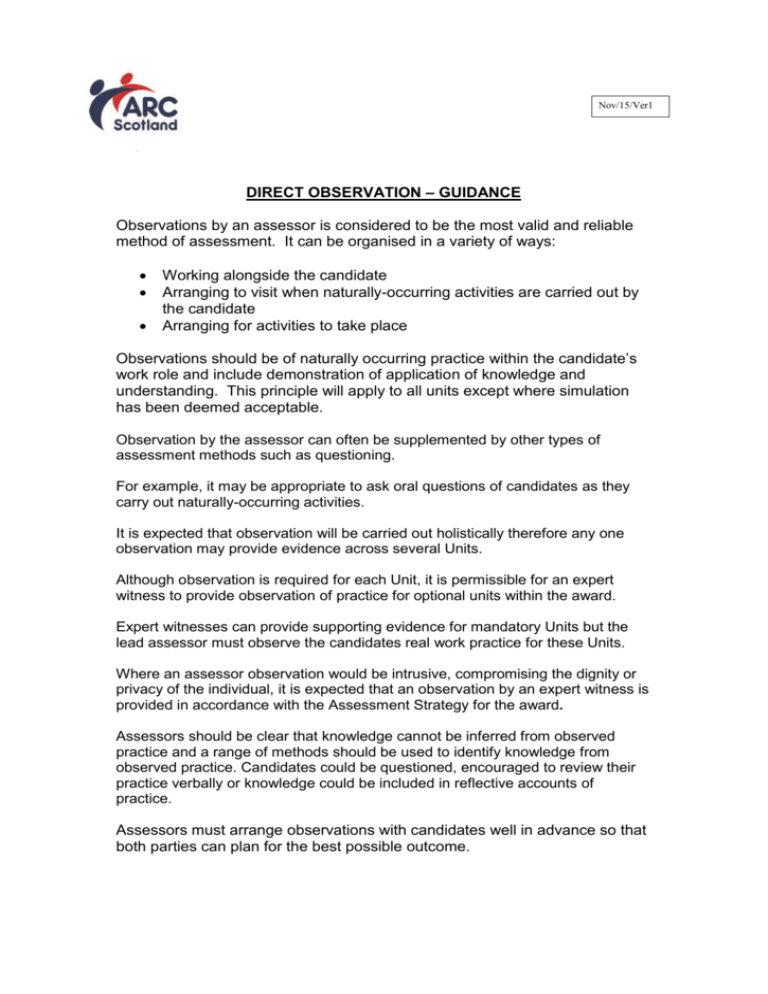
Nov/15/Ver1 DIRECT OBSERVATION – GUIDANCE Observations by an assessor is considered to be the most valid and reliable method of assessment. It can be organised in a variety of ways: Working alongside the candidate Arranging to visit when naturally-occurring activities are carried out by the candidate Arranging for activities to take place Observations should be of naturally occurring practice within the candidate’s work role and include demonstration of application of knowledge and understanding. This principle will apply to all units except where simulation has been deemed acceptable. Observation by the assessor can often be supplemented by other types of assessment methods such as questioning. For example, it may be appropriate to ask oral questions of candidates as they carry out naturally-occurring activities. It is expected that observation will be carried out holistically therefore any one observation may provide evidence across several Units. Although observation is required for each Unit, it is permissible for an expert witness to provide observation of practice for optional units within the award. Expert witnesses can provide supporting evidence for mandatory Units but the lead assessor must observe the candidates real work practice for these Units. Where an assessor observation would be intrusive, compromising the dignity or privacy of the individual, it is expected that an observation by an expert witness is provided in accordance with the Assessment Strategy for the award. Assessors should be clear that knowledge cannot be inferred from observed practice and a range of methods should be used to identify knowledge from observed practice. Candidates could be questioned, encouraged to review their practice verbally or knowledge could be included in reflective accounts of practice. Assessors must arrange observations with candidates well in advance so that both parties can plan for the best possible outcome.
